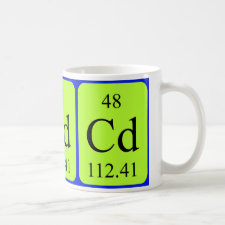
Authors: Chen AW, Zeng GM, Chen GQ, Hu XJ, Yan M, Guan S, Shang C, Lu LH, Zou ZJ, Xie GX
Article Title: Novel thiourea-modified magnetic ion-imprinted chitosan/TiO2 composite for simultaneous removal of cadmium and 2,4-dichlorophenol.
Publication date: 2012
Journal: Chemical Engineering Journal
Volume: 191
Issue: (1)
Page numbers: 85-94.
DOI: 10.1016/j.cej.2012.02.071
Alternative URL: http://ee.hnu.cn/eeold/php/news/pic/yunfeirandompic_1336217741.pdf
Abstract: In the present study, a novel type of adsorbent called thiourea-modified magnetic ion-imprinted chitosan/TiO2 (MICT) was prepared with the purpose of improving its feature as a composite adsorbent. The simultaneous cadmium ion adsorption and 2,4-dichlorophenol (2,4-DCP) degradation by this novel composite adsorbent were investigated. The obtained results showed that the optimum pH values for adsorption of cadmium and degradation of 2,4-DCP were approximately 6.0 - 7.0. The kinetics study demonstrated that the adsorption process proceeded according to the pseudo-second-order model. The maximum adsorption capacity for cadmium was 256.41 mg/g according to the Langmuir model. The intermediate products of the reaction consisted of 4-chlorophenol, 1,4-benzoquinone, phenol, cyclohexanol, and some other trace substances, as identified by gas chromatography/mass spectroscopy (GC/MS) technique. The sequential degradation process was proposed, including reductive dechlorination or reaction with hydroxyl radicals based on the products identified. The used sorbent was reusable after regenerated through desorption, and the adsorption and degradation capacities were barely affected after five cycles
Template and target information: cadmium ion, Cd(II), 2,4-dichlorophenol, 2,4-DCP
Author keywords: adsorption, 2,4-Dichlorophenol, cadmium, chitosan, ion-imprinted, Photocatalysis



Join the Society for Molecular Imprinting

New items RSS feed
Sign-up for e-mail updates:
Choose between receiving an occasional newsletter or more frequent e-mail alerts.
Click here to go to the sign-up page.
Is your name elemental or peptidic? Enter your name and find out by clicking either of the buttons below!
Other products you may like:
 MIPdatabase
MIPdatabase









